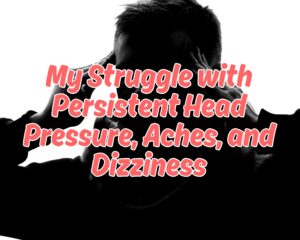Hey fellow sufferers and curious minds, welcome to my world—the not-so-wonderful land of post nasal drip, and what feels like an endless battle against my own body, especially when I get sick on top of it. If you’ve ever experienced that constant tickle in the back of your throat, the mucus that just won’t quit, and then caught a cold to boot, you know exactly what I’m talking about. It’s not just discomfort; it’s a full-on assault on your well-being. And if you haven’t, well, consider yourself lucky.
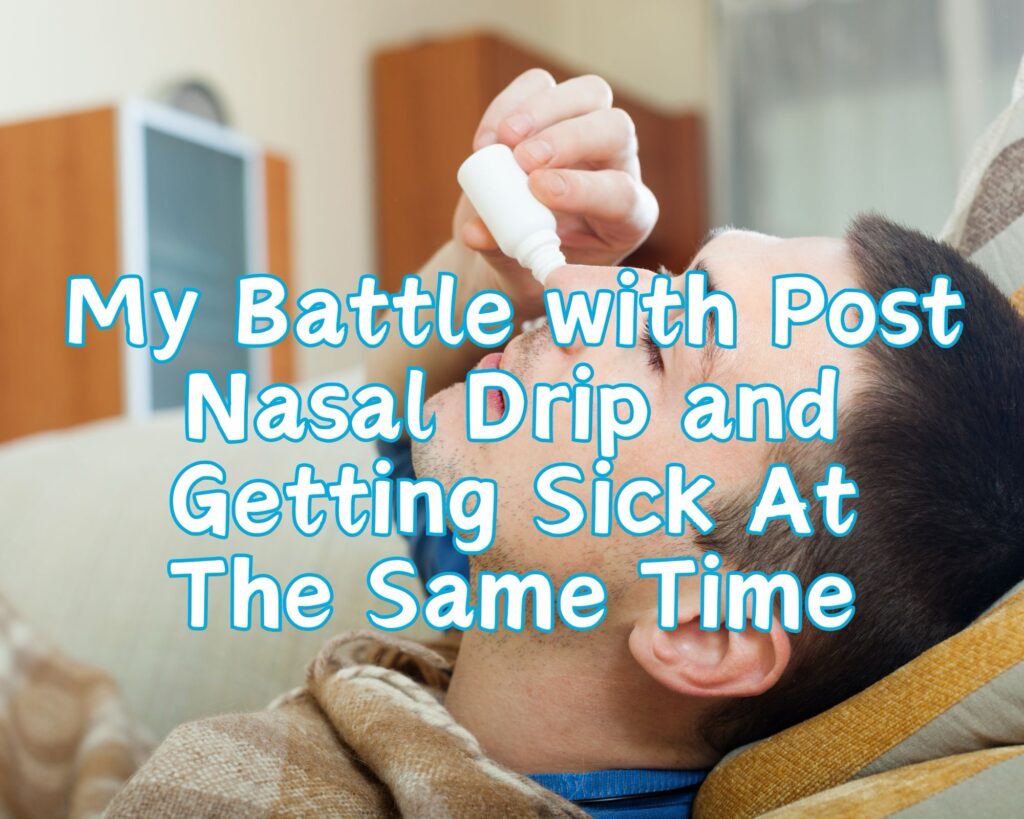
Post nasal drip on its own is enough to drive anyone a little crazy. It’s like having an uninvited guest that just won’t leave. But when you add an actual illness into the mix, like a cold or the flu, it turns into an absolute nightmare. I’m here to share my personal journey through this double whammy of health fun, hoping to shed some light on what post nasal drip is, how it feels, and what happens when you get sick on top of it. Trust me, it’s a ride you want to be prepared for.
Throughout this exploration, I’ll dive into some natural remedies for sinus congestion that have been lifesavers for me, and discuss the challenges of breathing difficulties when sniffing around anything that might trigger my symptoms further. Plus, I’ll touch on how products like Flonase can offer relief, understanding their uses, mechanism, and generic alternatives.
So, buckle up. Whether you’re a fellow sufferer or just here to learn, I hope my experiences and insights can help you navigate through or better understand this storm. Let’s get into it.
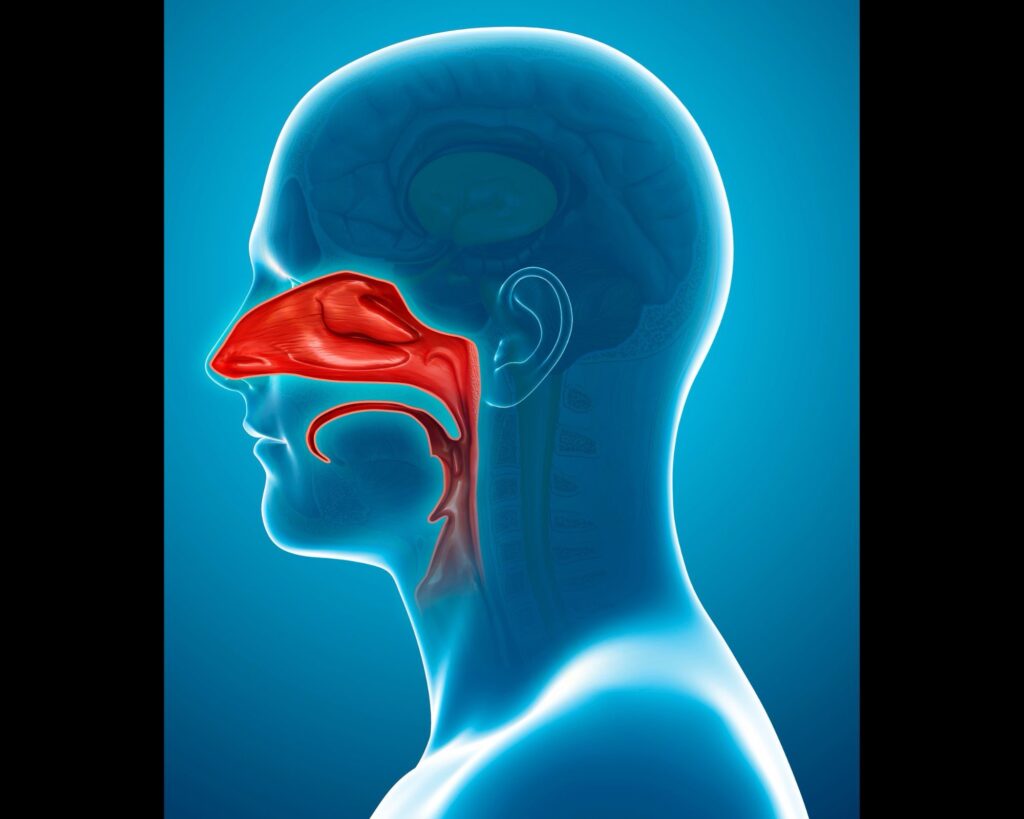
What Is Post Nasal Drip?
Imagine waking up in the morning feeling like you’ve swallowed a small, prickly cactus during the night. That’s the opening act of post nasal drip for you. It’s this relentless sensation of mucus accumulation in the back of your throat, a constant companion that no amount of swallowing, coughing, or throat clearing seems to dislodge.
Post nasal drip is not just about the physical discomfort, though that’s plenty on its own. It’s the way it invades every moment of your day. Trying to have a conversation? Here’s a cough. Trying to get some sleep? Let’s turn that into a hacking symphony. It’s like your body’s on a mission to remind you every few minutes that something’s off.
The drip itself is a thick or thin (oh, it likes variety) mucus that slides down the back of your nasal passages, pooling in your throat or sometimes spilling into your voice box. This can lead to a hoarse voice, another delightful symptom, making you sound like you’ve just returned from cheering at a week-long sports event.

And just when you think you’re getting a handle on managing this nuisance, getting sick on top of post nasal drip cranks the discomfort up to eleven. It’s like your throat becomes a battleground for symptoms, with the drip now joined by the soreness and rawness of a cold or flu. The constant throat clearing turns into painful coughing spells, and the mucus seems to thicken, making you feel like you’re swallowing through a straw.
Seeking relief becomes a top priority. Many turn to remedies and aids to help manage the symptoms. For instance, the use of a Flonase Allergy Relief Nasal Spray can offer a reprieve by addressing the nasal inflammation and reducing mucus production. But the journey to finding what works for you—be it over-the-counter solutions, natural remedies, or just figuring out how to breathe comfortably again—can feel like a quest of epic proportions.
Living with post nasal drip, especially when compounded by illness, is a trial of patience and endurance. It’s a stark reminder of how something seemingly small can have a profound impact on our well-being. But through a combination of treatments, remedies, and a good dose of humor, it’s possible to navigate these choppy waters and find relief.

How Does Post Nasal Drip Feel?
To say that post nasal drip is uncomfortable would be an understatement. It’s more like a constant, nagging reminder that something’s amiss in your nasal passages and throat. Let me paint a picture of what a day in the life with post nasal drip feels like, especially when you’re unlucky enough to get sick on top of it.
Morning: The Unwelcome Wake-Up Call
Your day starts not with the sound of an alarm, but with the sensation of mucus accumulation at the back of your throat. It’s as if your body’s own defense mechanisms decided to throw a party overnight, and you’re just now dealing with the aftermath. The first task of the day? Trying to clear your throat without sounding like a bullfrog.
Throughout the Day: The Battle Continues
As the day progresses, so does the drip. It’s not just dripping at this point; it feels like a slow, continuous stream. Talking for more than a few minutes? That can trigger a coughing fit. And if you’re in a quiet room, the constant need to swallow or clear your throat can make you feel self-conscious. It’s like carrying around a little secret that’s not so secret anymore because everyone can hear it.
Ever thought you could be allergic to your air conditioner? We have an article on that!
Eating and Drinking: A Mixed Bag
You’d think that eating or drinking might offer a temporary reprieve, but it’s a mixed bag. Sometimes, it feels like food and liquids offer a momentary clearing of the passageways. Other times, it’s as if everything you swallow has to navigate an obstacle course, making you dread meal times.
Nighttime: Seeking Relief in Vain
Then comes nighttime, which should be about rest and recovery, right? Instead, lying down seems to exacerbate the sensation of mucus dripping, making it harder to fall asleep. And just when you do manage to drift off, the coughing spells or the urgent need to clear your throat can wake you up. It’s a cycle that leaves you exhausted, craving the rest you can’t seem to get.
Adding illness into the mix, like a cold or flu, intensifies every symptom. The mucus feels thicker, the throat soreness is magnified, and the overall malaise makes you long for the days when post nasal drip was your only concern. During these times, finding effective relief becomes your main focus. Whether it’s reaching for Flonase to ease the inflammation and reduce mucus production or exploring natural remedies to soothe your symptoms, the goal is clear: to find some semblance of normalcy amid the discomfort.
Living with post nasal drip, especially when compounded by other illnesses, is a journey filled with ups and downs. But understanding what you’re dealing with and finding ways to manage it can make all the difference in navigating this challenging experience.
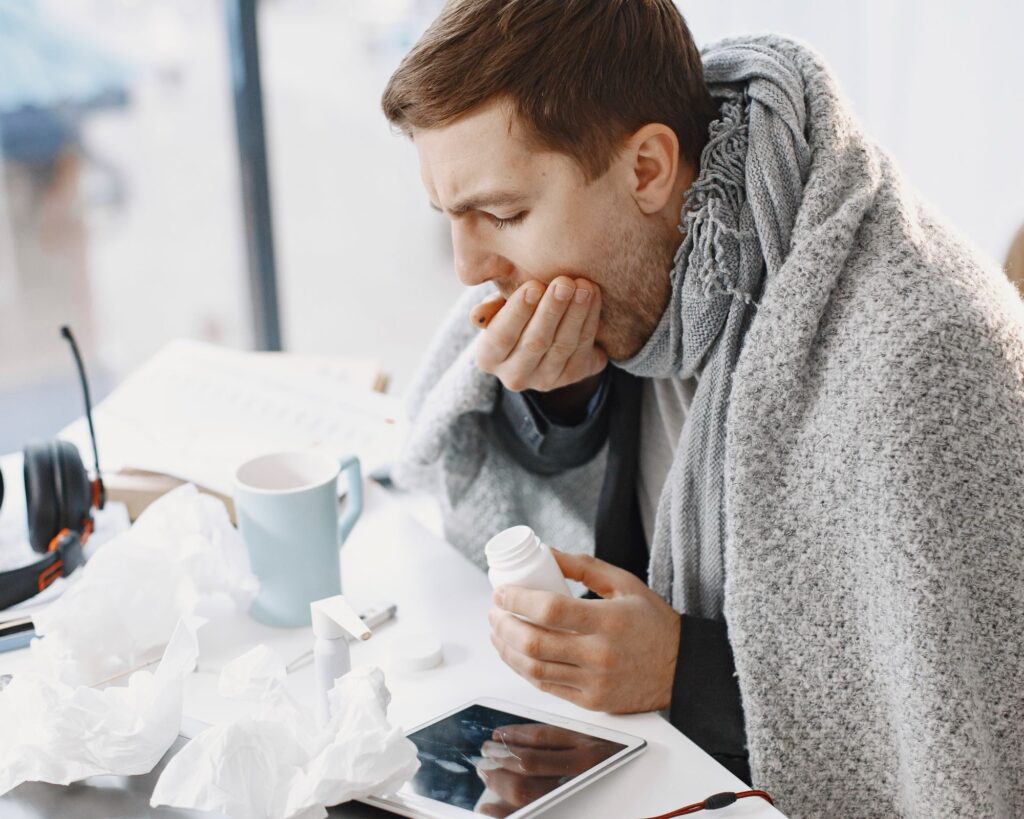
What Are the Common Symptoms of Post Nasal Drip?
Post nasal drip isn’t just a singular annoyance; it’s more like a domino effect of symptoms, each contributing to a collective discomfort that can overshadow your day-to-day life. Based on my experience, and what I’ve learned along the way, here are the common symptoms that tag along with post nasal drip, especially when an additional illness joins the party.
Constant Throat Clearing and Coughing
This is the hallmark of post nasal drip. The sensation of mucus accumulation compels you to clear your throat frequently, leading to an almost reflexive, and often quite loud, cough. It’s not the polite, “excuse me” cough, but a deep, guttural one that seeks to expel the unwelcome guest from your throat.
Sore Throat
With all the coughing and throat clearing, a sore throat often follows. It feels raw, irritated, and sometimes burning, turning even the simple act of swallowing saliva into a conscious effort. When you’re sick with a cold or flu on top of post nasal drip, this soreness can escalate into a full-blown pain, making eating and drinking a task rather than a pleasure.
Hoarseness and Voice Changes
The continuous irritation and clearing can affect your vocal cords, leading to hoarseness or changes in your voice. You might find your voice becoming raspier or notice it failing you at times, especially when you need to speak for extended periods.
Difficulty Sleeping
Nighttime exacerbates post nasal drip symptoms. Lying down seems to invite the mucus to pool at the back of your throat, disrupting your sleep with coughing fits or the urge to clear your throat. Add in the symptoms of an additional illness like congestion, fever, or body aches, and restful sleep becomes a distant dream.
Bad Breath
Not often discussed but equally troubling is the issue of bad breath associated with post nasal drip. The excess mucus provides a breeding ground for bacteria, which can lead to an unpleasant odor, adding a layer of self-consciousness to the mix.
Ear Pain or a Feeling of Fullness
Sometimes, the excess mucus finds its way into the eustachian tubes, leading to a sensation of fullness or even ear pain. It’s a less common but quite bothersome symptom, making you feel like you’re underwater at times.
Navigating through the maze of post nasal drip symptoms requires patience, trial and error with remedies, and sometimes a bit of humor to get through the tougher days. Products like Flonase Allergy Relief Nasal Spray have been part of my arsenal, offering relief from the nasal inflammation that’s often at the root of these symptoms. Additionally, turning to natural remedies for sinus congestion has provided some solace, easing the symptoms in a more gentle manner.
In the end, understanding these symptoms is the first step in managing them. It’s about finding what works for you and knowing that you’re not alone in this struggle.

How Does Getting Sick on Top of Post Nasal Drip Affect You?
Imagine you’re already navigating the choppy waters of post nasal drip, with its relentless mucus, throat clearing, and all the other joyful symptoms. Now, add in getting sick—say, with the common cold or the flu. It feels like going from a manageable drizzle to being caught in a downpour without an umbrella. The impact is not just physical; it takes a toll on your mental and emotional well-being too. Here’s how this double whammy has affected me, and what I’ve learned about coping with it.
Amplified Symptoms
The symptoms of post nasal drip are bothersome on their own, but when you’re also battling an illness, they intensify. The mucus feels thicker, harder to clear, and as if it’s constantly at the gates, demanding attention. The sore throat graduates from discomfort to outright pain, making swallowing a dreaded necessity.
The Exhaustion Multiplier
Dealing with post nasal drip requires a certain level of energy and resilience, but when you’re sick, your energy reserves are already depleted. The additional burden feels like an exhaustion multiplier, where every task, every effort to clear your throat, every attempt to just breathe comfortably, feels like an uphill battle.
The Mental Fog
Illness brings with it a mental fog, a kind of cognitive sluggishness that makes concentration a challenge. Combine this with the constant distraction of post nasal drip symptoms, and it can feel like your brain is operating through a thick soup of mucus and malaise.
The Emotional Toll
There’s also an emotional aspect to consider. The frustration of dealing with prolonged symptoms, the isolation from possibly missing social events or work, and the overall impact on your quality of life can lead to feelings of despair or depression. It’s not just the physical symptoms but the sense of being trapped in a cycle of illness that can wear you down.
Finding Relief and Support
In these times, finding effective relief becomes more than just a desire—it’s a necessity. Alongside Flonase Allergy Relief Nasal Spray for managing the nasal inflammation and mucus production, exploring natural remedies for sinus congestion has offered some respite. Staying hydrated, resting as much as possible, and maintaining a healthy diet are pillars of support for your body as it fights off the illness.
It’s also crucial to reach out for support when you need it, whether it’s consulting with a healthcare professional, talking to friends and family, or connecting with others who understand what you’re going through. Remember, getting sick on top of dealing with post nasal drip is a heavy load to bear, and it’s okay to seek help in carrying it.
Coping with post nasal drip and additional sickness is an ordeal, but with the right strategies and support, it’s possible to weather the storm. It’s about managing symptoms, conserving energy, and keeping an eye on the light at the end of the tunnel—a return to better health and comfort.
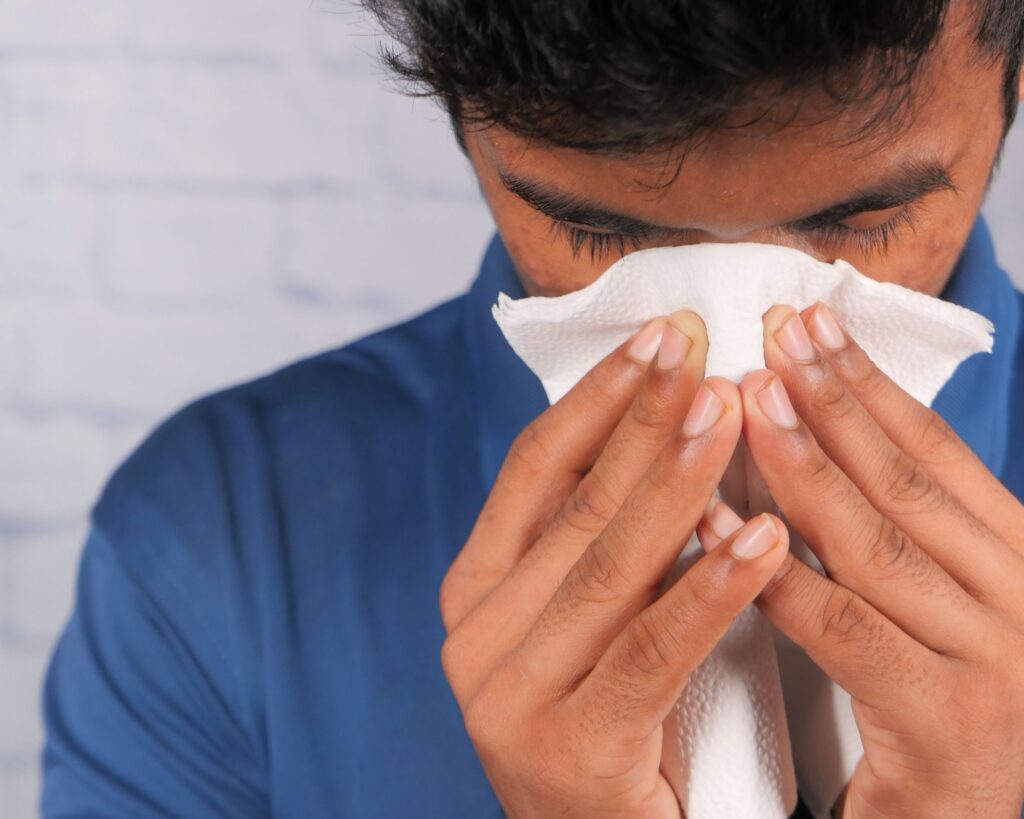
What Remedies Help Alleviate Post Nasal Drip Symptoms?
When post nasal drip decides to make your throat its home, and then you get hit with an illness on top, finding relief becomes a top priority. Over the years, I’ve discovered a mix of remedies, both medicinal and natural, that have helped ease the discomfort. Here’s a rundown of what’s worked for me, in hopes it might offer you some relief too.
Medicinal Remedies
- Nasal Sprays: Products like Flonase Allergy Relief Nasal Spray have been a staple in my arsenal against post nasal drip. They help reduce inflammation in your nasal passages, easing the mucus production that leads to that incessant drip.
- Decongestants and Antihistamines: Over-the-counter decongestants can relieve nasal congestion, while antihistamines are effective against allergies, one of the common culprits behind post nasal drip.
Natural Remedies
- Stay Hydrated: Drinking plenty of fluids helps thin the mucus, making it easier to clear. Warm teas and broth can be particularly soothing.
- Saltwater Gargle: A simple saltwater gargle can help soothe a sore throat and reduce the thickness of the mucus.
- Humidifiers: Using a humidifier adds moisture to the air, which can alleviate the dryness and irritation in your throat and nasal passages.
- Steam Inhalation: Breathing in steam from a hot shower or a bowl of hot water can help loosen the mucus, providing temporary relief.
Dietary Adjustments
- Avoid Irritants: Certain foods and beverages, like caffeine, alcohol, and spicy foods, can exacerbate post nasal drip symptoms. Identifying and avoiding these irritants can help.
- Incorporate Spices: Some spices, such as ginger and turmeric, have anti-inflammatory properties that can offer relief from symptoms.
Lifestyle Changes
- Elevate Your Head While Sleeping: Keeping your head elevated can prevent mucus from pooling in your throat overnight, reducing the severity of symptoms in the morning.
- Practice Good Hygiene: Regular hand washing and avoiding exposure to allergens or irritants can help prevent post nasal drip and additional illnesses.
For more insights into managing sinus congestion naturally, exploring resources like natural remedies for sinus congestion can provide valuable tips and alternative solutions.
It’s important to remember that what works for one person might not work for another, and sometimes it’s a process of trial and error to find the best combination of remedies for your situation. Consulting with a healthcare professional before trying new treatments, especially if you’re already sick on top of dealing with post nasal drip, is always a wise choice.
As an Amazon Associate we earn from qualifying purchases through some links in our articles.




